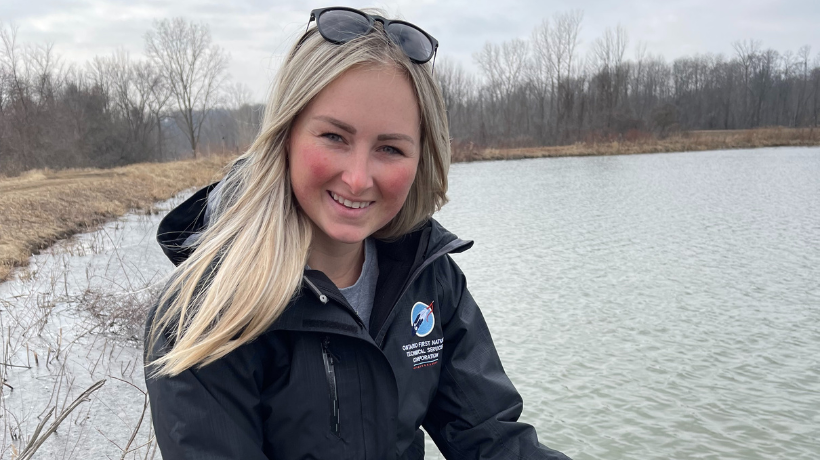Today on International Women's Day, we're highlighting even more young inspirational women who are paving the way for women in STEM here at OFNTSC.
Check out the interview below Courtney Lamb, and be sure to follow @OFNTSC on social media to meet some of our other incredible team members!
Q: As a young woman working in a STEM field, what would you say inspired you to pursue the career you're in right now?
Looking back to what inspired me to join the STEM field, I started at a young age. I enjoyed spending my time outdoors with my family, from the summers being on the water fishing to the fall and winter spending my time in the woods hunting. I was always mesmerized by how everything in the environment was connected in one way or another. This is why I choose to study environmental management which lead me to water and wastewater treatment. For many years I worked in the municipal jurisdiction but I always felt like there was a bigger world to explore in the industry. That’s when I came across Ontario First Nations Technical Services. I knew I desired to be a part of the HUB team, where I could bring forward my education and experience to further support our First Nation communities in the province.
Q: Do you think it's important for women to pursue a career in STEM fields and why?
As a woman working in a STEM field, I believe it is a great career for fellow women to pursue! With more women joining the STEM workforce, it brings diversity and a better well-rounded perspective from a variety of people. If you decide to pursue a role in STEM you are actively contributing to beneficial change. As the first female HUB technician for OFNTSC, I am often speaking with young females from the communities I work in, to encourage them to take the step to become water treatment operators for their communities as it opens so many doors.
Q: What do you love the most about your chosen career?
Any day that I can support the efforts to ensure that communities have safe drinking water and also safe treated wastewater for the environment is a good day in my books. I love that I can be a part of a positive change in our First Nations communities and give support for a better future. This career is continuously changing, from new technologies, compliance, and equipment which gives me the opportunity to never stop learning.
Q: How do you incorporate Traditional Indigenous or Ecological Knowledge into your work?
Learning from my co-workers and operators in the communities and furthering my education, I learned that throughout history, women have always been waterkeepers. Through the teachings it is acknowledged that women are the inheritors of water knowledge, protection, and management. This is something I keep in mind during my work days and why I encourage women to join the water and wastewater industry.
Q: What advice would you give to your younger self?
After being in the industry for almost ten years, looking back I would tell myself to use my voice. I feel that being a young woman in a STEM career, surrounded by very few other women I was often too afraid to speak up in situations because I lacked confidence. Though looking back I had nothing to be afraid of as we all are in this together.

